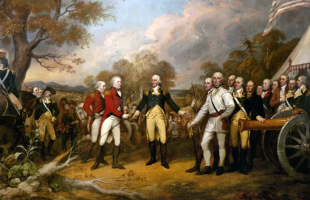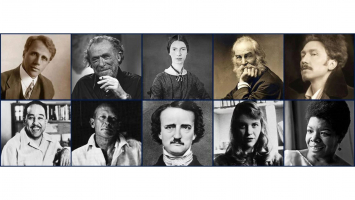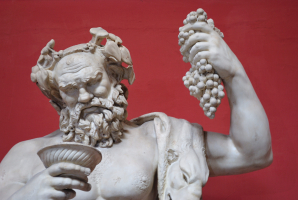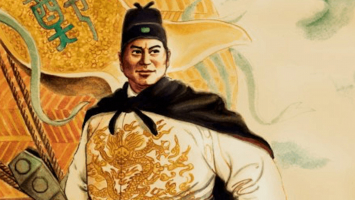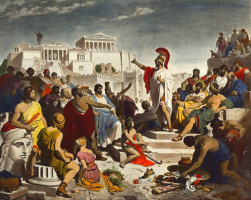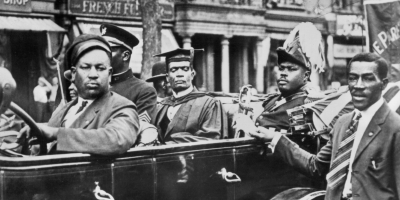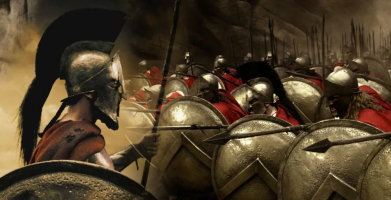Top 10 Interesting Stories From the Modern Olympics
The Olympic Games have served as a showcase for the highest levels of athleticism and competitive prowess for more than 120 years. Additionally, they have ... read more...experienced their fair share of drama, primarily in the form of doping scandals, as well as tragedy. The Munich Olympics from 1972 come to mind. They've also hosted a lot of odd and surprising events at the same time. Today, Toplist examines ten of them.
-
The Olympic rings, flag, and mascots are just a few of the many symbols and traditions connected to the games. Who could forget the relay of the torches, of course? Every time, the torch is brought from Olympia, Greece, through several cities until it reaches the host city, where it is used to ignite the Olympic flame and signal the beginning of the games. It is a prestigious tradition that perfectly captures the pageantry and allure of the Olympics. Just that it was developed by Nazi Germany is a shame.
Yes, that is accurate. The 1936 Berlin Olympics marked the debut of the Olympic torch relay. Although it may seem like something that would have been done in antiquity, Germany was actually searching for anything that would establish a symbolic connection between the present Nazis and the ancient Greeks.
Carl Diem, one of the key organizers of the 1936 Games, is typically credited with coming up with the idea for the torch relay. Although he wasn't a Nazi personally, Hitler and Goebbels co-opted the entire event and made sure that every single aspect was used to demonstrate the superiority of the Third Reich once they understood the propaganda potential of the Olympics.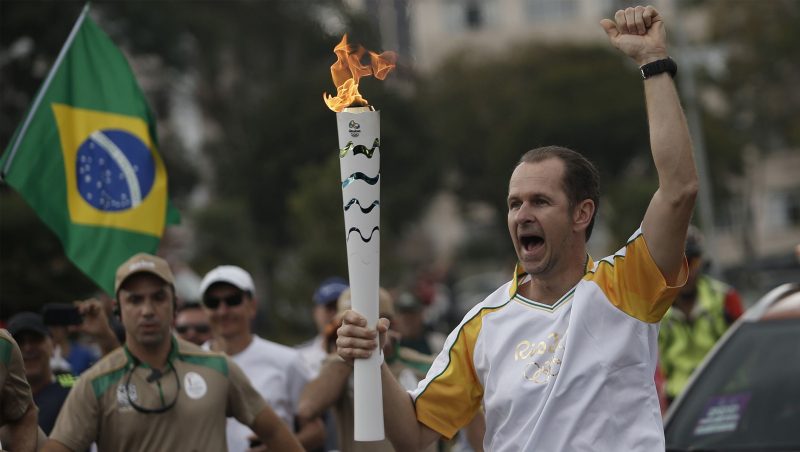
https://www.pinterest.de/ 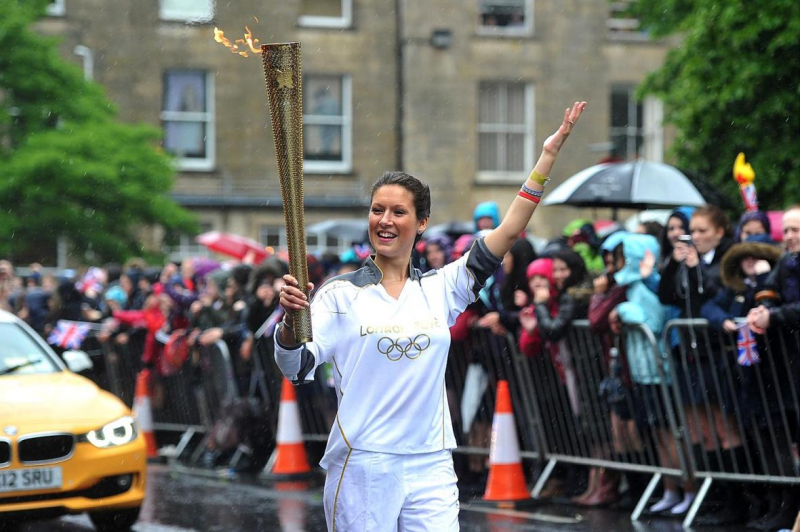
https://www.thetimes.co.uk/ -
Who won the youngest gold medal in Olympic history, you might wonder. That's a very good question, and it gives you a lot to be proud of. However, the solution is not quite obvious. Diver Marjorie Gestring, who is 13 years and 267 days old, is acknowledged as being the youngest. But there was someone younger than her, that much is evident. Simply put, people don't know who he was.
This dates all the way back to the coxed pair rowing competition in the 1900 Summer Games in Paris. Three people made up each team: two rowers and a cox who served as their leader. The squad benefited from the cox being as light as possible because he did not perform any physical effort. As a result, the Dutch team decided to imitate the French team by using a young boy as their cox.
Prior to the race, they switched out their regular cox, Hermanus Brockmann, with an unidentified youngster, aged 7 to 10, who they randomly selected from the audience. That youngster became the youngest gold medalist in history when the Dutch team took first position. He posed for a picture with the victorious squad before vanishing into the crowd; no one even knows his name.

https://www.olympics.com.au/ 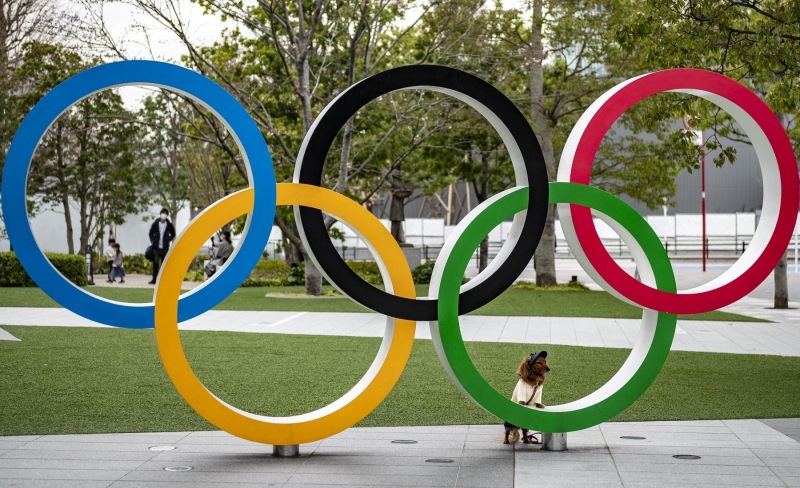
https://www.gmanetwork.com/ -
The five interlocking rings of various colors that make up the Olympic flag have become one of the most recognised symbols in the entire world. It was created by Pierre de Coubertin, the man who founded the modern Olympics, and was formally adopted at the 1920 Summer Olympics in Antwerp. It didn't last long, though. The original flag vanished after the competition, so the Olympics committee had to make a new one for the games in Paris.
The first flag's whereabouts became a mystery, which persisted for almost eight decades. In 1997, at a U.S. Olympic Committee luncheon, a journalist brought up the unsolved mystery of the original flag. A former Olympian by the name of Hal Haig Prieste was motivated by this to contact the journalist and mention that he had the missing flag and had been keeping it in a bag for the previous 80 years.
Prieste, who was 100 years old at the time of the dinner, participated in the diving competition in the 1920 Games and won the bronze medal. A teammate dared him to climb the flagpole and take the flag after a night of boisterous celebrations, which he did. He then fled Belgium with the flag safely tucked inside his suitcase. He didn't appreciate the value of his memento until the banquet 80 years later, thus a ceremony was planned in 2000 to formally return the flag to the Olympic committee.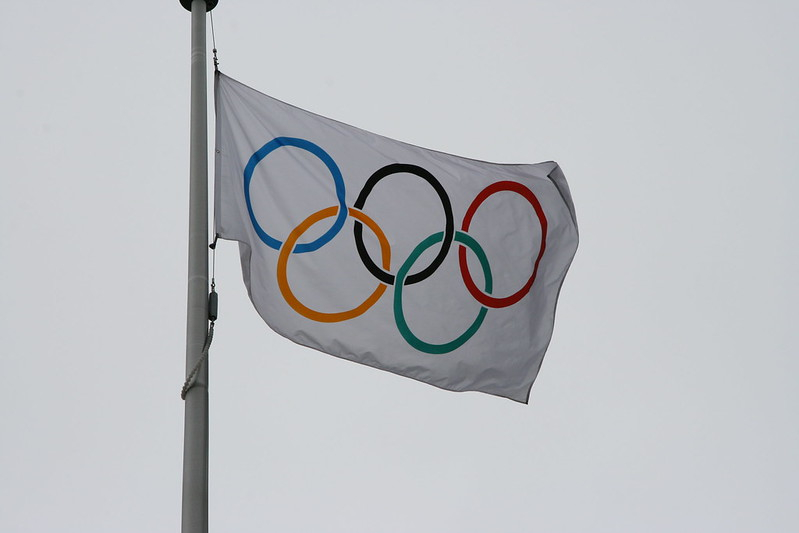
https://www.bradycarlson.com 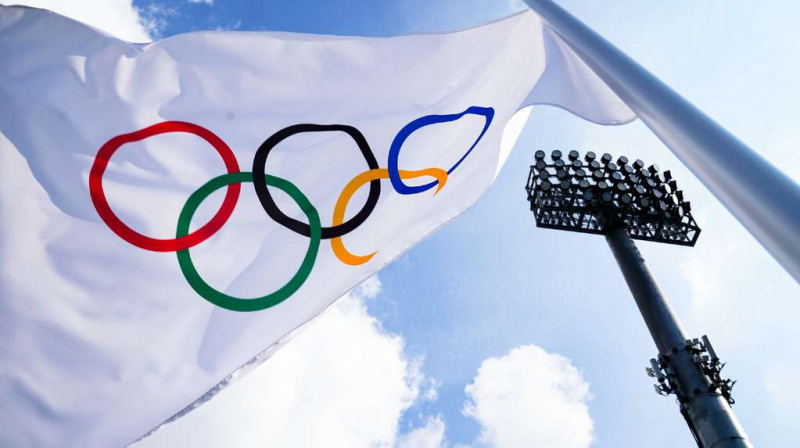
https://marketresearchtelecast.com/ -
Obviously, if something is uninteresting, it won't make for a very good story. However, anything instantly becomes interesting if it is the most boring thing. The 18-foot dinghy sailing competition from the 1920 Summer Games must be the most underwhelming race in Olympic history; that is what we are dealing with today.
What made this encounter so unimpressive? It's straightforward: only Francis Richards and Thomas Hedberg's squad from the United Kingdom participated. Not only that, but they dropped out of the first race as well. Despite not taking part in the other three races, they still received points because they were the only ones participating.
If the duo genuinely won the competition and received medals, or if the whole thing was thrown out, is still something of an Olympic mystery. The 18-foot race is not even included in some official records, while other sources describe the two sailors as gold medal winners.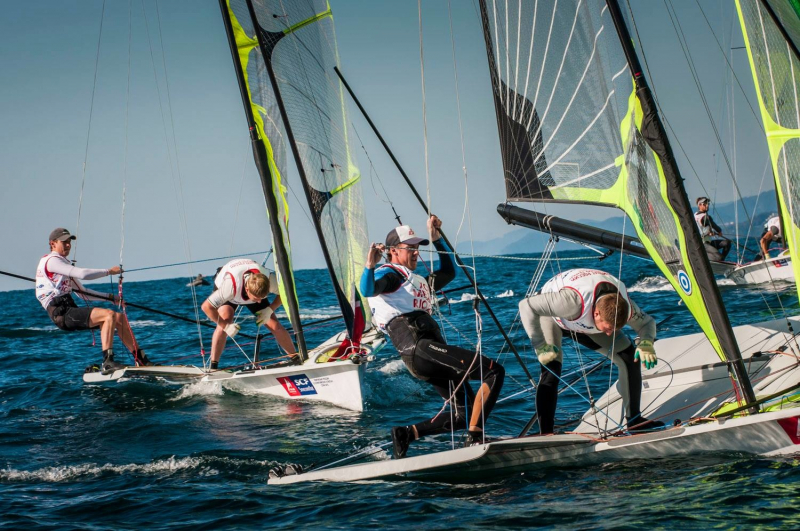
https://itboat.com 
https://www.mysailing.com.au/ -
Muhammad Ali, being 18 years old, won the gold medal in light heavyweight boxing at the 1960 Summer Olympics in Rome. He was given a replacement medal at the Atlanta Games since he misplaced the original one 36 years earlier. The fate of Ali's original gold medal during that time is still a mystery.
Because it was the first time an African American had won a world championship in any sport, it was also an important cultural moment. Ali became a national hero in America and around the world as a result of his victory. He brought millions of dollars in financial donations with him when he left for the United States.
Clay subsequently made the decision to change his name to Muhammad Ali and convert to Islam. After receiving his religious training at Egypt's Al-Azhar University, this name change took effect. Ali also modified his boxing technique, claiming that he was a "slave before Allah," which resulted in numerous objections from the judges regarding his aggressive strategies. This didn't stop him from rising to even greater fame than before, though. He became even more well-liked across the globe as a result of his new persona as a nonviolent, spiritual man.Ali's autobiography, which was released in 1975, claims that he threw it into the Ohio River in Louisville after getting into a brawl over being turned away from a "whites-only" restaurant. This was done out of rage and defiance. Numerous of the boxer's pals claimed that this tale was untrue, but since no one has come up with a different theory, there is still a potential that Muhammad Ali's gold medal is still out there.
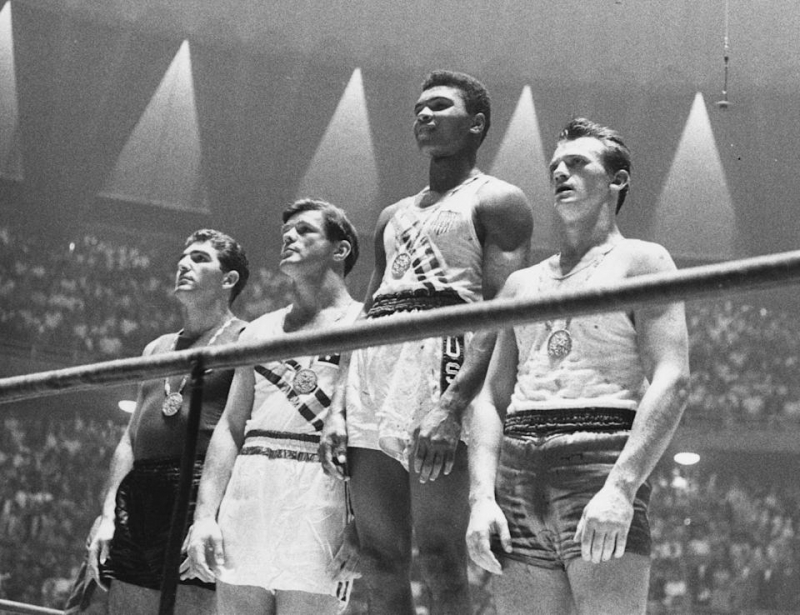
https://sg.news.yahoo.com 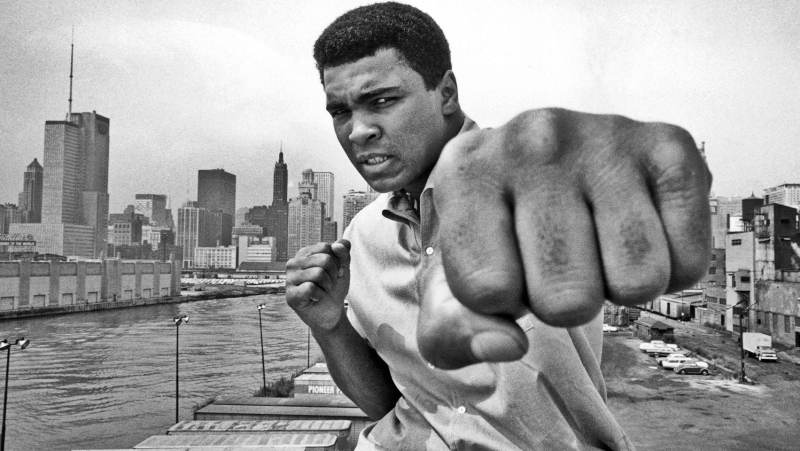
https://whap.mrduez.com/ -
Dating back to the St. Louis Olympic Marathon in 1904, there was an incredible tale of Félix "Andarn" Carvajal, the first Olympian from Cuba. Carvajal, a postman in his hometown of Havana, is said to have persuaded the mayor to send him to the Olympics by jogging laps around City Hall for the duration of an entire workday. The athlete ran out of money in New Orleans while traveling to America. Although some claim that Carvajal may have been robbed, the majority of accounts hold that the postman lost the money he had saved for the journey.
He was now homeless and 670 kilometers from the location of the race. Carvajal had no choice but to trek and hitchhike to St. Louis. He was now homeless and 670 kilometers from the location of the race. Carvajal had no choice but to trek and hitchhike to St. Louis. He made it in time, but the journey had left him filthy, perspiring, famished, and exhausted as a dog. Moreover, he still had a marathon to complete.
Of course, he didn't have any racing equipment. Carvajal arrived with a soiled white shirt, long pants, and boots. His appearance became much more odd and amusing when someone helped him by cutting his pants and making them into shorts.
Carvajal was a fan favorite during the race because he enjoyed stopping to talk to the spectators. He remembered that he hadn't eaten in two days as he ran by an apple orchard and stopped to get a short mid-race bite. Carvajal also took a brief mid-race snooze since the apples were bad and gave him a severe stomach ache. Even so, he placed fourth.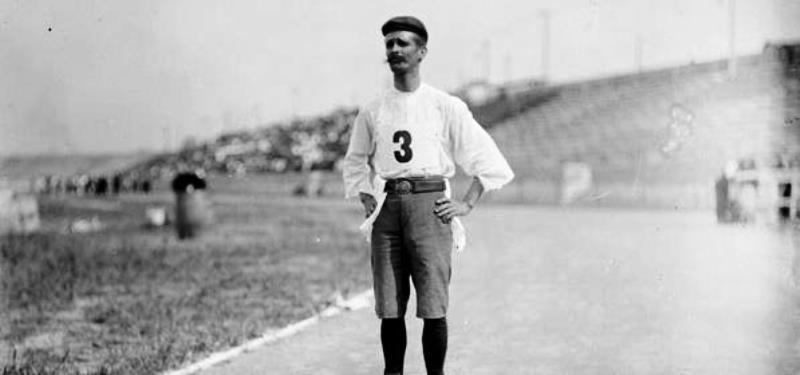
https://www.flagsonline.it/ 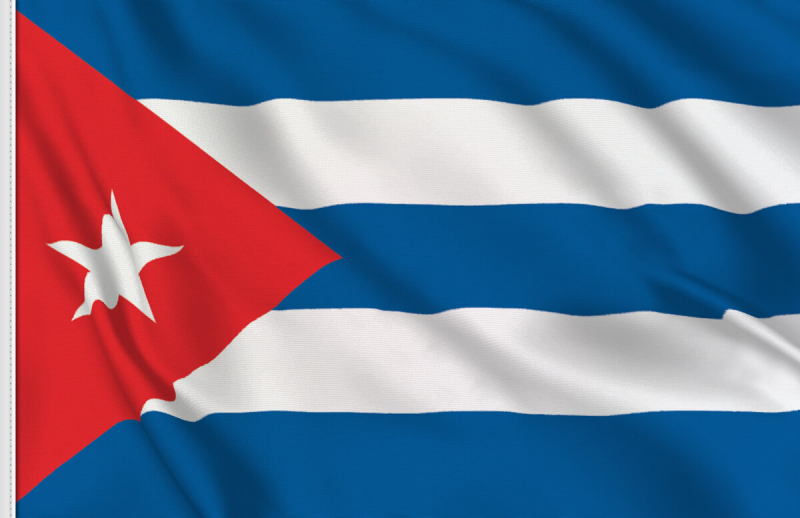
https://atletismoperuano.com/ -
Bobby Pearce, an Australian rower, became the first person to win the gold medal in the single sculls event at the summer Olympics in 1928 and 1932. But rather than a remarkable athletic achievement, a deed of charity and compassion has defined his Olympic journey.
In the quarterfinal race in the 1928 games in Amsterdam, Pearce held a big lead. He was the only person in the boat and was unable to observe what was happening in front of him. He eventually began to hear cries and yells coming from the folks on the riverbank. He turned to see what was happening and saw a mother duck and a line of teeny, fluffy ducklings crossing the canal directly in front of him.
Many other athletes would have run right by them because they wouldn't allow a few birds get in the way of their quest for sporting glory. Bobby Pearce, on the other hand, stopped his boat and waited for the ducks to successfully cross the canal before continuing the race. Because of his sympathy, French rower Vincent Saurin gained five lengths on him, costing him the lead. But luck was on his side that day, and Pearce not only caught up to the Frenchman but also left him in the dust, finishing the race with a lead of about 30 seconds.

https://www.terifranzenphotography.com 
https://bellavistapoa.com/ -
Speaking of ingenious ways to go around the law, people must give Madeline de Jess credit for coming up with a novel scheme to get around the law when she competed for Puerto Rico in the 1984 Summer Olympics in Los Angeles. To be honest, Madeline did have a disadvantage because her sister is a twin.
People now understand exactly what you are all thinking, and you are all correct. In the hopes that no one would notice, Madeline and Margaret pulled the old switcheroo. This is what transpired: Madeline injured her hamstring during the long jump competition, and she was scheduled to compete in the 4400 relay to advance to the finals less than a week later. Normally, the team would have had to forfeit because of this, but what if Margaret participated in her place? She was after all a track and field athlete.
Margaret successfully passed for her sister for a few days while residing and training at the Olympic village after Madeline handed her all of her credentials. The Puerto Rican team thus advanced to the finals on the big day. The sisters initially appeared to have fooled everyone, and they may have gotten away with it if it weren't for one astute journalist from Puerto Rico who discovered the whole scheme. A beauty mark on a cheek allowed him to distinguish between Madeline and Margaret.
https://arianekirtley.com 
https://www.youtube.com/ -
Sadly, there has always been a continuous issue with cheating during the Olympics. But while cheaters today typically look for new medicines that would pass the tests, athletes in the past were at least a little more inventive in their cheating.
Consider American long-distance runner Fred Lorz, who participated in the St. Louis Olympic marathon in 1904. Lorz started cramping around halfway through the race, so his manager picked him up in his car and drove him the remaining 11 kilometers. You have to at least commend Lorz for having such sheer audacity. As he continued to drive towards the finish line and wave at the crowd, he made no effort to conceal his deceit.
Naturally, Lorz won the race, and Alice Roosevelt, Teddy Roosevelt's daughter, was about to present him with the gold medal when she learned of his deceit. While acknowledging the act, Lorz insisted that it was all a jest and that he had no desire to receive the accolade. We will never know if this is true, but Lorz did have a happy ending when he ran the Boston Marathon the following year. This time, he won equally and fairly.
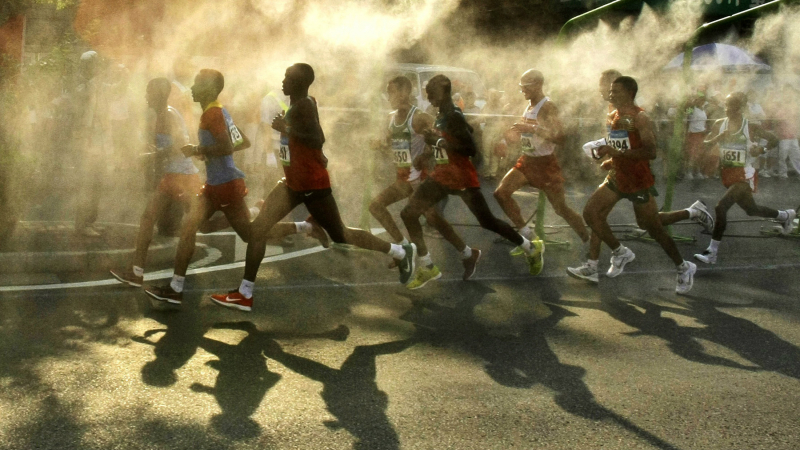
https://qz.com/ 
https://mpora.com/ -
Tug-of-war was one of many events that used to be part of the early Olympics, but are no longer. Three teams from Great Britain competed in the 1908 Games in London; each team was made up entirely of police officers; the teams were from the City of London, the Met, and Liverpool. The two national teams from the United States and Sweden were added to them, making up the whole field for the tug-of-war competition.
In the quarterfinals, the Americans faced Liverpool and promptly defeated. They then reported to the authorities that their rivals were wearing shoes that were prohibited and characterized them as being "as huge as North River ferryboats, with steel-topped heels and steel cleats in the front of the soles, while spikes an inch long protrude out of the soles."The Liverpool police force stated that the boots were normal issue that they wore on the job despite the fact that "prepared boots or shoes with any projecting nails" were prohibited. The American team's complaint was therefore overruled, and the Liverpool team ultimately won the silver medal.
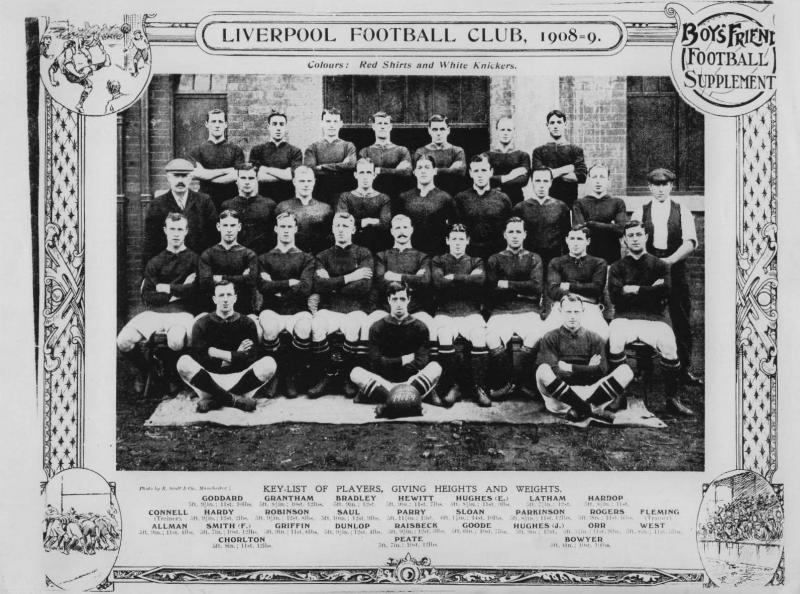
https://www.lfchistory.net 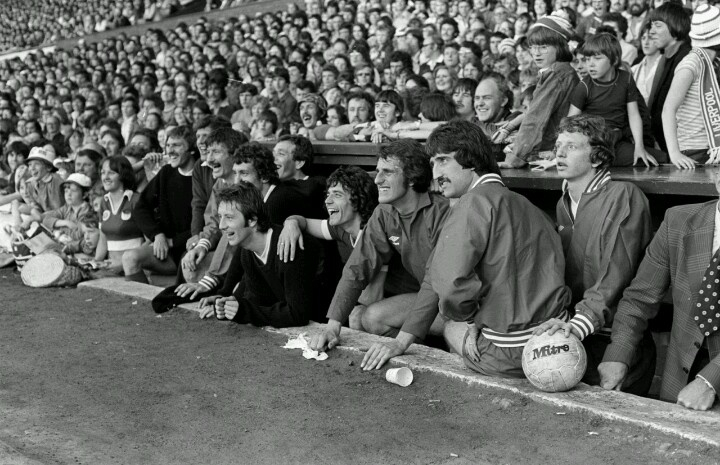
https://www.pinterest.co.uk/












